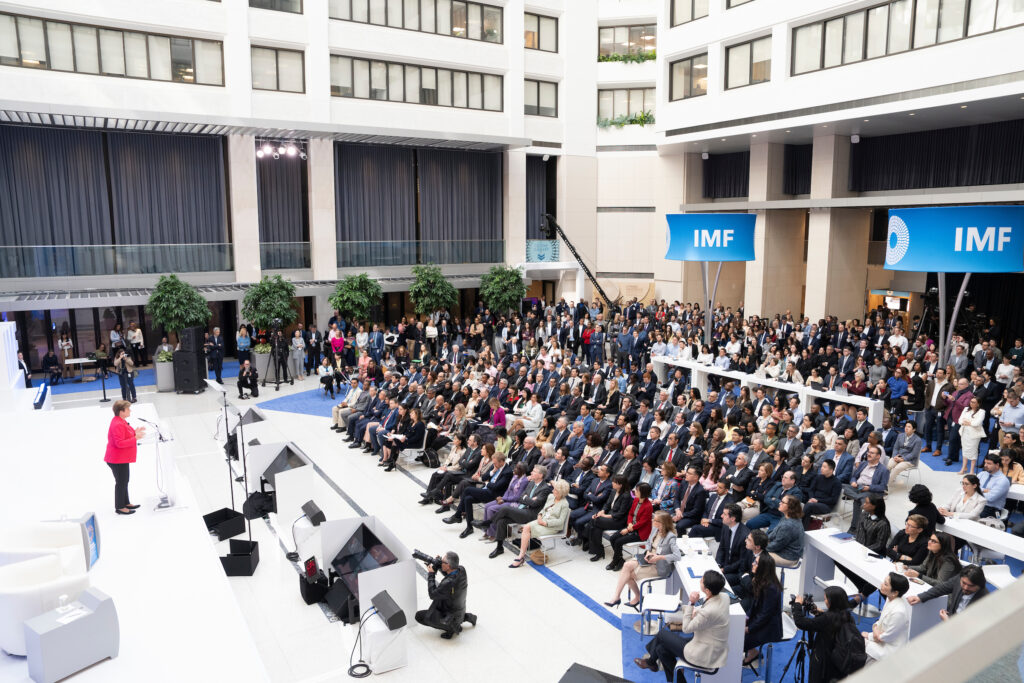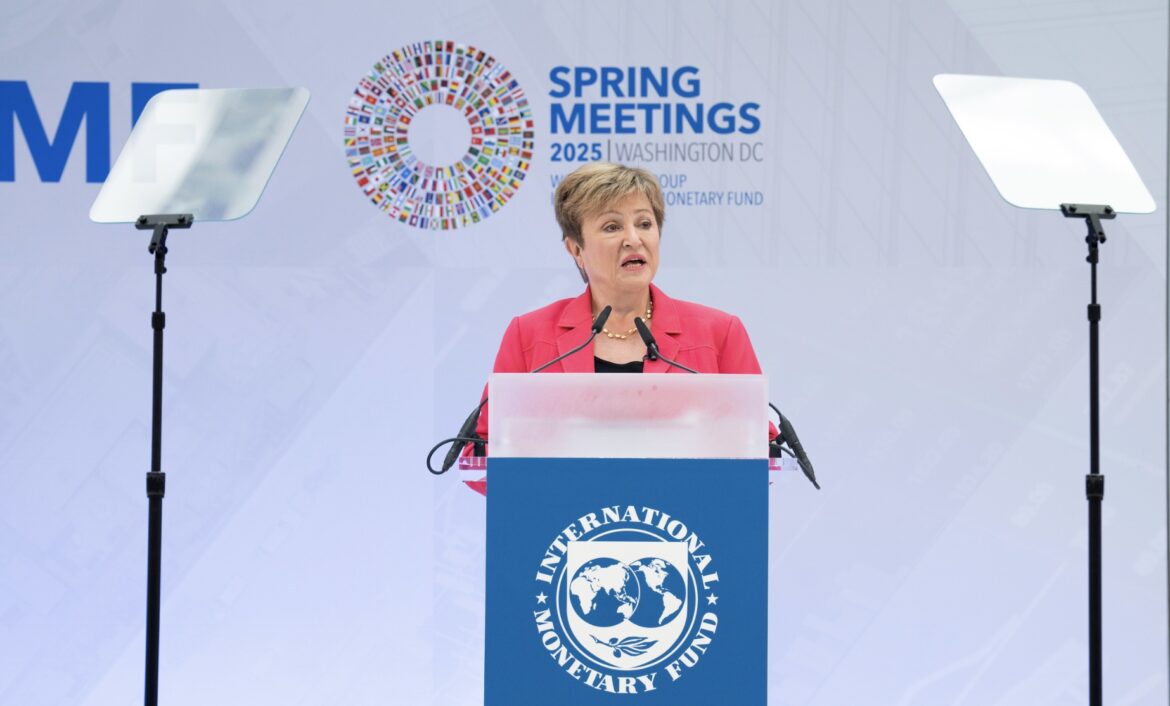At the 2025 IMF Spring Meetings Curtain Raiser held at the IMF Headquarters in Washington DC, on April 17, 2025, Managing Director of the International Monetary Fund (IMF), Kristalina Georgieva, commended India’s proactive reforms, particularly its efforts to reduce tariffs.
“Countries that brave to take on tough reforms and move forward perform better,” she said, highlighting India’s actions as a strong example of growth-oriented policymaking.
Georgieva spoke to Fox Business Network anchor Maria Bartiromo following her opening remarks about the Spring Meetings scheduled for April 21–26. In a wide-ranging conversation, she addressed the current global financial landscape, shaped by ongoing trade tensions initiated by the United States.
Discussing growth prospects, Georgieva pointed to India as a standout. “India, a country, by the way, very interesting in the context of the discussion we have around trade, a country that for quite some time was uneasy with reducing tariff and non-tariff barriers, India is now doing it,” she noted.
She further emphasized India’s strides in digitalization and the creation of an investment-friendly environment that encourages private sector participation, elements she described as “very healthy for the economy.”
On the broader issue of tariffs and their impact on long-term growth, Georgieva again cited India as an example for others to follow, suggesting that lowering trade barriers could yield economic benefits globally.
Reflecting on the current state of uncertainty in global trade, she remarked there has been a “very sharp increase in uncertainty” but stressed that economic fundamentals remain resilient.

Looking ahead to the Spring Meetings, Georgieva said the IMF’s message would center on the theme that while global forecasts are being revised downward, a recession is not imminent. “There are currently markdowns, but not recession,” she said. Drawing from past crises, she warned that prolonged uncertainty could drag on global performance and emphasized the importance of “clarity,” to stabilize outlooks.
“The real economy is functioning, labor markets are still quite strong, and the financial system is holding despite all the shocks,” she stated. She also underscored that reforms after the global financial crisis have helped build economic resilience for precisely such challenging moments. “To me, the moral of the story is, how can we be agile in learning from each and every experience, so we do better next time around.”
When asked about former President Donald Trump’s agenda of extending tax cuts and deregulation in the context of current trade disputes, Georgieva acknowledged that a strong US economy is essential for global stability.
“US is so significant for the world, it would be very valuable for the world. A strong US economy is a stabilizer for the rest of the global economy,” she said. She praised the current administration’s cautious approach to deregulation, stating, “So, I actually appreciate that the administration is not rushing. It’s taking its time to think it through, because you don’t want to deregulate in in a way that creates vulnerabilities…”
Georgieva also weighed in on tensions between the US and China, acknowledging American concerns over trade practices and intellectual property rights. “We see China asking for an engagement with US, in which the two sides would be placed in a good footing,” she said. “We would like to see reduction in uncertainty, and it is hard to get there if the two largest economies are still finding their footing. Obviously from a point of the world economy, it is important that the result of all this is a more fairer, rule-based system.”
Addressing recession fears, she implied that many such predictions come from those unfamiliar with the cyclical nature of economies. “One thing I learned through crisis periods is that perceptions matter as much as reality. The reality may be great, but if perceptions change negatively, that can be quite detrimental to the performance of the economy. So, let’s move perceptions up.”
She also emphasized the importance of structural reform and innovation, pointing to artificial intelligence as a key driver of future productivity and competitiveness. After the tariff crises, “everyone has forgotten about AI,” she noted, adding that the global policy dialogue at the IMF meetings next week will refocus attention on such growth-oriented strategies.
On how IMF can support emerging and developing markets through these turbulent times, Georgieva reiterated the institution is “really a great stabilizer and supporter of reforms in the world.” She explained the IMF’s unique funding model, which functions like a savings account where member countries contribute resources that are lent out with interest.
The IMF does not ask taxpayers for money but operate like a savings account. she said, highlighting that the United States earned $3.1 billion in interest payments over the past two years. She emphasized by affirming that the IMF’s foundation rests on sound policies – those that support innovation, encourage private sector investment, and build resilience.






